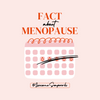
Do Mind-Body Interventions Work for Menopause Symptoms?
, by Paul Walker, 3 min reading time

, by Paul Walker, 3 min reading time
Menopause is a natural phase in a woman’s life marked by the cessation of menstruation, typically occurring between the ages of 45 and 55. While it is a biological milestone, the physical, emotional, and psychological symptoms associated with menopause—such as hot flashes, sleep disturbances, mood swings, and anxiety—can significantly affect quality of life. In recent years, many women have turned to mind-body interventions as a natural approach to managing these symptoms. But do they actually work? Let’s explore the evidence.
Mind-body interventions are practices that integrate mental and physical processes to promote well-being. Common examples include:
These techniques aim to reduce stress and promote relaxation, which can have a ripple effect on physical symptoms.
Research suggests that mind-body interventions can address both physical and emotional symptoms of menopause. Here's what the science says:
Hot Flashes and Night Sweats
Studies have shown that mindfulness meditation, yoga, and paced breathing exercises can reduce the frequency and intensity of hot flashes. For example, a 2019 meta-analysis published in Menopause found that yoga had a moderate effect in improving vasomotor symptoms (hot flashes and night sweats), likely due to its stress-reducing benefits.
Sleep Disturbances
Insomnia and poor sleep quality are common during menopause. Mindfulness and cognitive behavioral therapy for insomnia (CBT-I) have demonstrated significant improvements in sleep duration and quality. MBSR, in particular, teaches women to manage racing thoughts and nighttime anxiety, aiding better sleep.
Mood Swings and Anxiety
Mind-body interventions such as meditation, yoga, and Tai Chi help regulate mood by reducing cortisol (the stress hormone) and increasing endorphin levels. A study in JAMA Internal Medicine reported that mindfulness practices could reduce anxiety and depression in menopausal women, promoting emotional balance.
Muscle and Joint Pain
Tai Chi, yoga, and other movement-based practices improve flexibility, joint mobility, and strength. These benefits help alleviate musculoskeletal discomfort that often arises during menopause due to hormonal changes.
Overall Quality of Life
Women practicing mind-body therapies report improvements in overall well-being, self-perception, and life satisfaction. This may be due to a combination of stress relief, improved physical health, and enhanced coping mechanisms.
While mind-body interventions offer promising results, they may not fully resolve severe menopausal symptoms for everyone. Combining these practices with other treatments, such as hormone replacement therapy (HRT) or dietary changes, can be more effective. Always consult a healthcare provider before starting new therapies, especially if you have underlying health conditions.
Mind-body interventions, such as yoga, mindfulness, and Tai Chi, can effectively reduce menopause symptoms, particularly stress, hot flashes, and sleep disturbances. While they may not completely replace medical treatments for some women, these holistic practices offer a valuable, natural way to enhance overall well-being during menopause. For many, they provide not just symptom relief but also a sense of empowerment and connection to their own bodies.